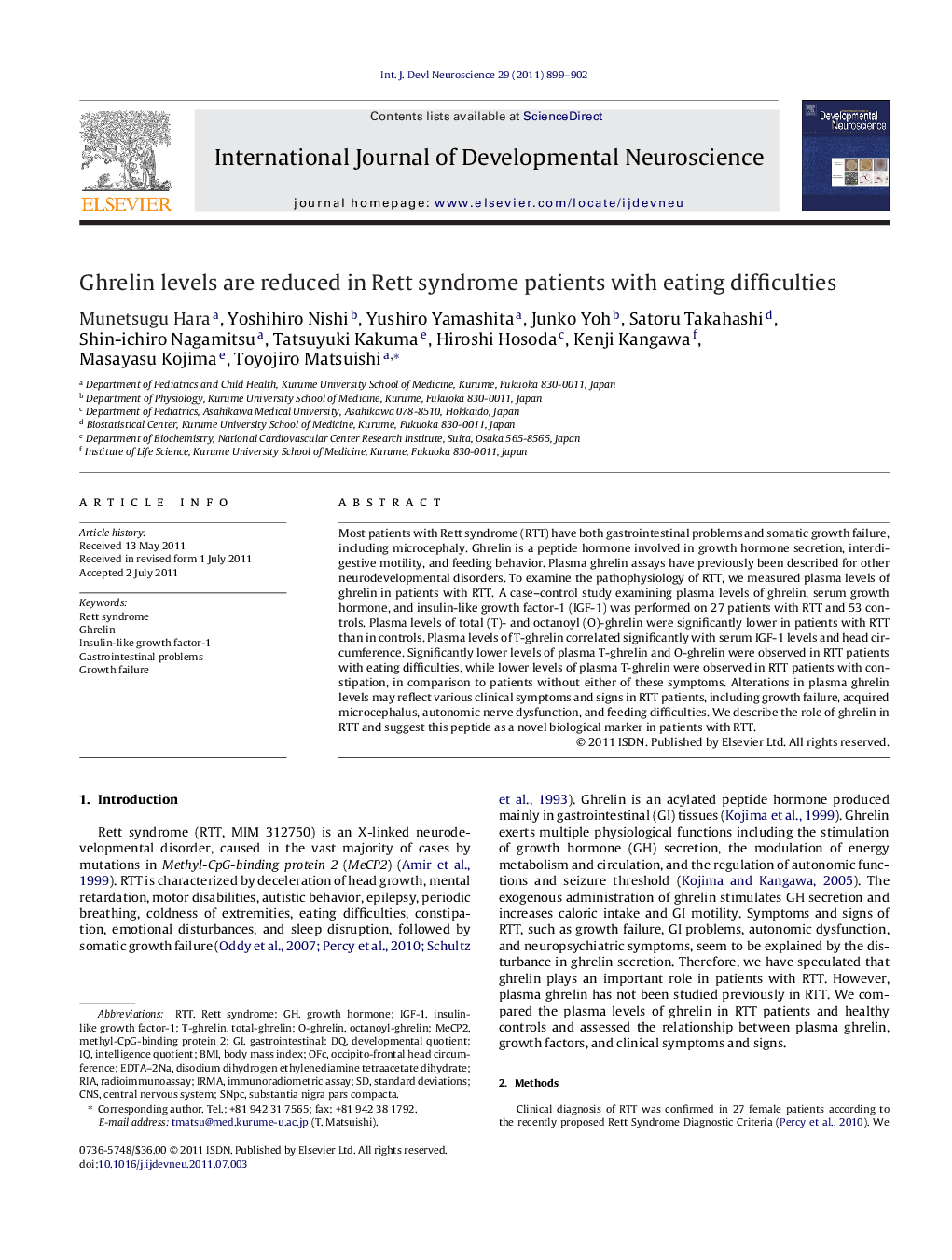| Article ID | Journal | Published Year | Pages | File Type |
|---|---|---|---|---|
| 2786323 | International Journal of Developmental Neuroscience | 2011 | 4 Pages |
Most patients with Rett syndrome (RTT) have both gastrointestinal problems and somatic growth failure, including microcephaly. Ghrelin is a peptide hormone involved in growth hormone secretion, interdigestive motility, and feeding behavior. Plasma ghrelin assays have previously been described for other neurodevelopmental disorders. To examine the pathophysiology of RTT, we measured plasma levels of ghrelin in patients with RTT. A case–control study examining plasma levels of ghrelin, serum growth hormone, and insulin-like growth factor-1 (IGF-1) was performed on 27 patients with RTT and 53 controls. Plasma levels of total (T)- and octanoyl (O)-ghrelin were significantly lower in patients with RTT than in controls. Plasma levels of T-ghrelin correlated significantly with serum IGF-1 levels and head circumference. Significantly lower levels of plasma T-ghrelin and O-ghrelin were observed in RTT patients with eating difficulties, while lower levels of plasma T-ghrelin were observed in RTT patients with constipation, in comparison to patients without either of these symptoms. Alterations in plasma ghrelin levels may reflect various clinical symptoms and signs in RTT patients, including growth failure, acquired microcephalus, autonomic nerve dysfunction, and feeding difficulties. We describe the role of ghrelin in RTT and suggest this peptide as a novel biological marker in patients with RTT.
► We compared the concentrations of plasma ghrelin between patients with Rett syndrome and controls. ► The age-specific levels of plasma ghrelin were distributed differently between the two groups. ► Ghrelin also may reflect gastrointestinal problems and growth failure in Rett syndrome. ► Ghrelin has therapeutic potentials for the symptoms of Rett syndrome.
